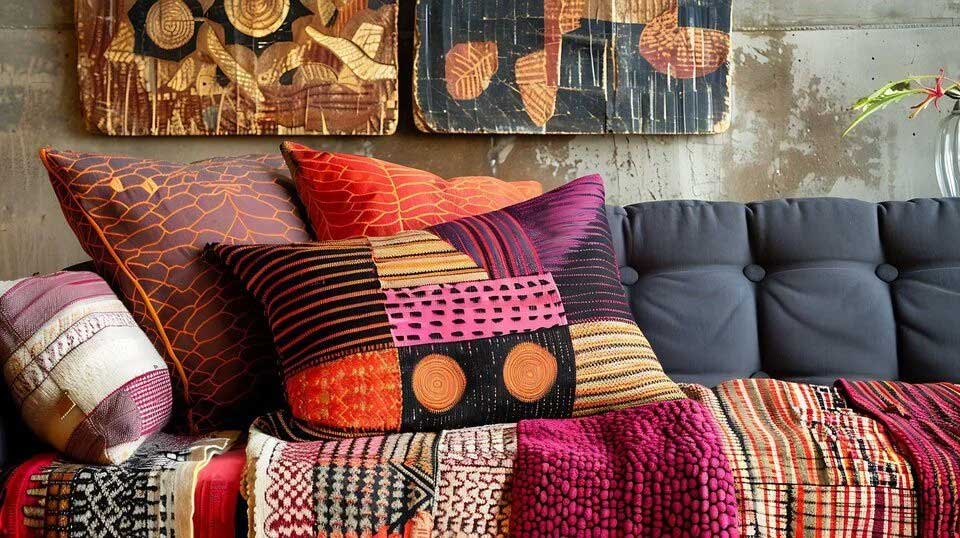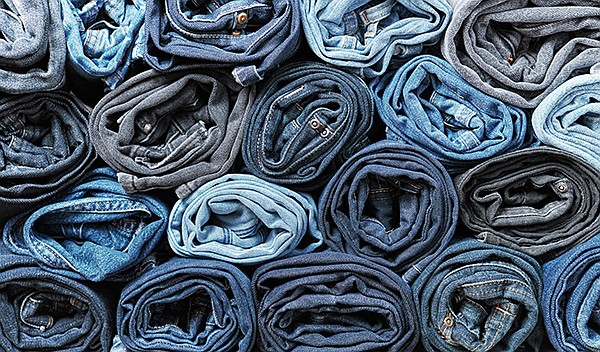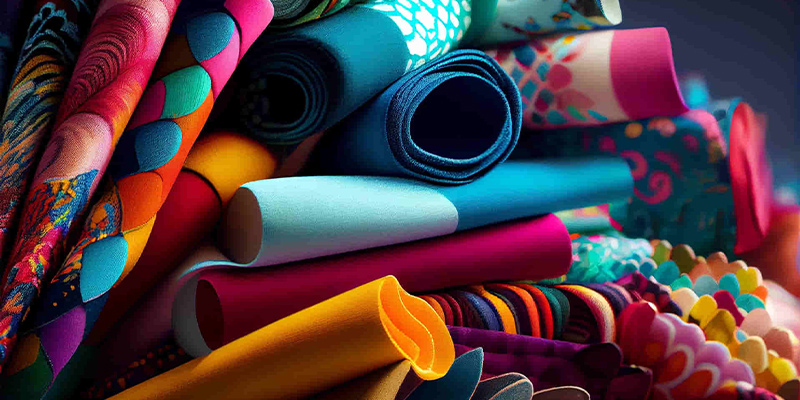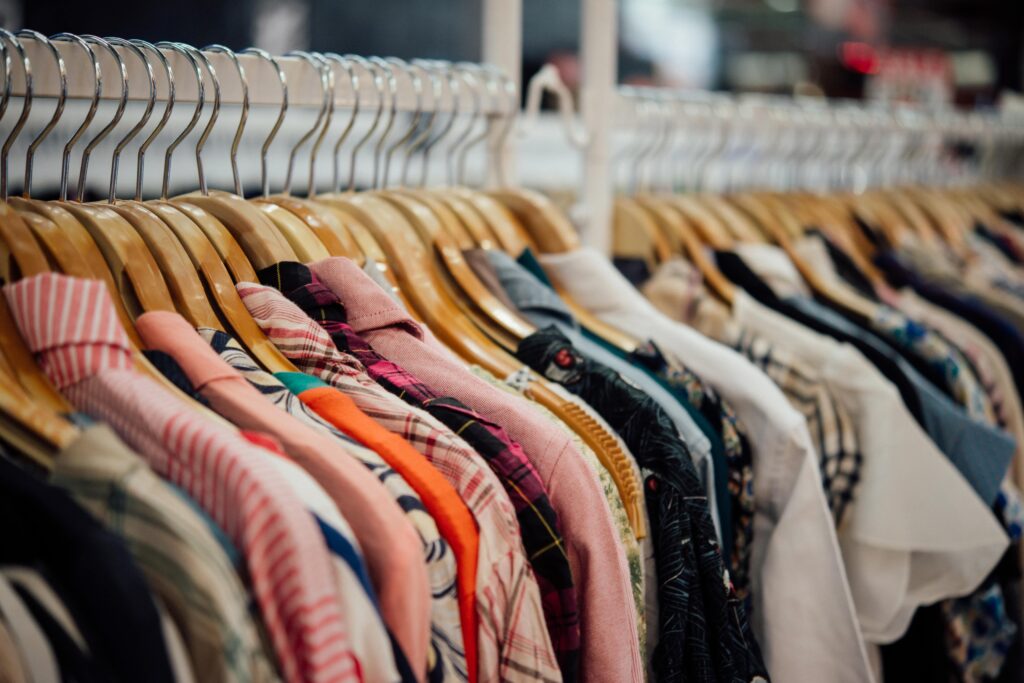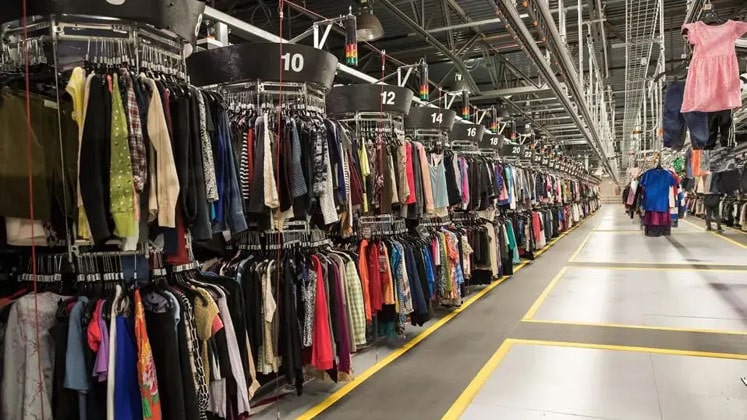FW
In a bid to provide year-round online access to a range of sustainable fabrics and textile mills, The Sustainable Angle, which initiates and supports projects that contribute to minimizing environmental impacts, has released the first version of its forthcoming Future Fabrics Virtual Expo.
The 3rd edition of Future Fabrics Expo in London displayed hundreds of sustainable fabrics. After encouraging response from visitors, the idea of launching a virtual expo concept was born. The concept is an online source of exhibitors that can be referred to after the event, wherein the Future Fabrics Virtual Expo also provides more in-depth information on textiles and mills.
This online version of the expo features six mills including Kassim Denim with organic cotton denim fabrics, textile designer Susan Gaunt Design with British wool, and Club Masters of Linen, with European linen. The second and more in-depth version of the Future Fabrics Virtual Expo will be launched in spring 2014. It is intended to provide an online tool for communication between textile mills and fabrics buyers and designers, allowing information on sustainability and sourcing to be easily shared, available on a subscription basis.
www.thesustainableangle.org
Dirtball, an apparel company based in Hickory, North Carolina is known for its eco-friendly clothing and American-made apparel. They have succeeded in creating a formula of selling clothing and gear made from recycled cotton, plastic, and polyester since 2008. In September, Dirtball unveiled its newest innovation – the Green Jean to the market.
The Green Jean, like everything in Dirtball’s product line, is made completely from recycled materials, using recycled and organic cotton and 8-10 recycled water bottles in every pair. There are four styles of Green Jean that are currently available; Rigid, Enzymed, Regular, and Khaki. Rigid is a black jean, Regular is a modern ultra-dark denim, and Enzymed is a medium-color blue denim, while Khaki is an eco-friendly take on a classic.
Dirtball has sourced all the materials for the jeans from regional suppliers; all metal pieces are from Georgia, denim and stitching supplies are sourced locally from North Carolina, and final assembly is done in Kentucky. Founded in 2008 by Joe Fox, race car driver, entrepreneur and North Carolina native, Dirtball constructs eco-friendly apparel and gear for active individuals – cutting across age and gender lines.
www.dirtballfashion.com
Nylstar, a leading supplier of nylon 6.6 and worldwide known by its brand Meryl, announces an investment of more than 1,200,000 euros that enables the company to significantly increase its production capacity from 15,000 to 17,000 annual tons. The investment comprises an installation of 21 Barmag winding machines that will increase productivity and will reduce waste considerably.
This investment will allow Nylstar to enlarge the variety of its product range; with a clear commitment of the company to deliver even more value-added products. The new equipment will be installed in January 2014 and will be operating immediately.
With challenging conditions both in the textile industry and in the market, Nylstar has been able to increase 10 per cent YTD its sales volume as the result of its focus on innovation and customer service. Nylstar, the Spanish provider of Nylon 6.6 fibers founded in 1923, believes in ongoing innovation and textile research, generating upscale concepts that aim to improve consumer’s quality of life.
Turkish denim specialist Calik Denim has unveiled a new eco-denim line to showcase its ongoing sustainability work. Called 'Botanical Sense,' the collection will launch with 20 new natural denims made from organic cotton, BCI (Better Cotton Initiative) cotton, recycled cotton, linen, paper yarn, Tencel and Modal.
Dyestuffs are either natural indigo or those approved by the Global Organic Textile Standard (GOTS). And finishes feature the recently introduced less-water technology or natural ingredients.
With stretch, super-stretch, comfort stretch and rigid articles, the collection is specifically designed for the Northern European markets. At the company's production plant in Malatya, the entire process is environmentally-friendly. Its R&D centre is currently working on 36 projects including vegetable dyes, energy-saving finishes and reducing water use in production. In particular, the Eco-Save process uses 65 per cent less water and chemicals in a typical denim production cycle, and has resulted in an average drop of 70 per cent in production waste, the company says.
Another innovation is a special finishing technique that gives a very soft handle along with a smoother and shinier surface appearance but also uses 50 per cent less water and just a quarter of the chemicals compared to other conventional finishes, according to Calik.
www.calikdenim.com
As per Addis Fortune report, Ethiopia exported $29 million (Rs 183 crores) worth of textiles during the first quarter of the fiscal year 2013-14 that began on July 8, 2013. The first quarter export earning was over 50 per cent higher than the $19 million (Rs 120 crores) made in the corresponding period of last year. But exports are still likely to fall short of government’s target of $500 million (Rs 3,159 crores) for the entire fiscal year, if the trend continues.
In 2012-13, Ethiopian textile sector exports clocked in $99 million (Rs 625.5 crores), much below the government target of $357 million (Rs 2,255.7 crores). The Ethiopian textile sector comprises of 110 companies, and the export target for each individual company for the current year is yet to be determined, says Ethiopian Textile Industry Development Institute (TIDI).
During the first quarter, 58 new medium textile factories became operational. In addition, large textile companies like Etur Textile Plc and Angels Addis are also likely to operate at higher capacities during the remaining part of the year. The Growth and Transformation Plan (GTP) of the Ethiopian government aims at earning textile export revenue of $1 billion (Rs 5,000 crores) by 2014-15 and creating 40,000 new jobs in the process.
Addisfortune.net
The issue came up for discussion during a meeting between Pakistan Textile Exporters Association Chairman, Sheikh Ilyas Mahmood, Khurrianwala Industrial Estate Association Chairman, Khurram Iftikhar, All Pakistan Bedsheet and Upholstery Manufacturers Association Vice Chairman, Ammar Saeed and others, a statement said.
“Gas is imperative to run the wheels of industry (and) in the absence of the basic fuel, how can the industry function,” the statement said. The industrialists were looking forward to framing of business-friendly policies by the government for economic revival, but they said such decisions went against the promises to facilitate the growth of trade and industry.
Saying that the country needed investment to improve infrastructure and revive the economy, it pointed out that suspension of gas supply to the industries would discourage prospective investors from considering Pakistan as an investment destination.
www.ptea.org.pk
Four textile industry leaders have been invited for the regional chambers of commerce roundtable conference on 'Normalizing India-Pakistan Trade' on November 26 at Karachi. The roundtable is being organized jointly by Indian Council for Research on International Economic Relations (ICRIER), New Delhi, the Federation of Pakistan Chambers of Commerce and Industry (FPand the Institute of Business Administration (IBA).
Challenges in Indo-Pak trade and economic cooperation, textiles, banking and non-tariff barriers to trade and trade in agriculture will be the topics discussed. For the first time in the history of Indian synthetic and rayon textile export, Pakistan has emerged as the leading market for fabrics and filament yarn surpassing US and Saudi Arabia. As per the latest figures from the textile ministry, man-made fabric and yarn export to Pakistan has increased by 25 per cent in 2012-13 at Rs 21 crores compared to Rs 16 crores in the previous year.
Owing to deeper business ties between traders in Karachi and Surat, around 60 per cent of contribution in the export to Pakistan has come from the MMF industry in Surat. The Surti traders exported dress material, saris, fabrics worth Rs 11 crores to Karachi, Peshawar and Lahore.
Manghani, the former president, Federation of Surat Textile Traders Association (FOSTTA) said, "There is still a huge scope of increasing textile trade between Surat and Pakistan. Our fabrics are in huge demand, but there are certain issues that need to be addressed."
Inspired by nasturtium leaves and butterfly wings, US engineers have created a waterproof material. The new ‘super-hydrophobic’ surface could keep clothes dry and stop aircraft engines icing over. Engineers say that the latest `super-hydrophobic' surface could keep clothes parched and would also prevent icing above aircraft engines. Earlier, the lotus leaf was considered for the purpose of drying up, but now a team from MIT in Boston says they have found an improved way.
The phenomenon takes place with the help of addition of ridges over the surface of silicon, bouncing back water at speed which is 40 per cent faster as compared to the earlier `limit'. Such ridges are also found on wings of the Morpho butterfly and on the vein of nasturtium leaves.
By applying a similar practice on the metals, fabrics and ceramics, scientists have made a new type of moisture-resistant products ranging from tents to wind turbines. Prof Kripa Varanasi says, "We believe these are the most super-hydrophobic surfaces yet. For years industry has been copying the lotus. They should start thinking about copying butterflies and nasturtiums".
The `lotus effect' has encouraged industrial fabrics, paints and roof tiles which copy structure that is observed in the leaves of plants. When ridges were applied to aluminium and copper oxides, water dried 40 per cent faster as compared to that on nasturtiums and the Morpho wings.
White Milano, Italian contemporary fashion trade show has entered into an agreement with UBM, a major Asian trade show organization, with the aim to start exhibiting in Shanghai. Between 5-7 March 2014, White Milano will participate in UBM Novomania, presenting its independent section together with specialised French fabric trade shows Premiere Vision Asia and Denim By PV Asia.
The new White Milano edition to be held in Shanghai is expected to host about 30 research brands, both for men and women and about 60 per cent accessories and 40 per cent fashion. These 30 exhibitors will add up to the about 70 showing at Novomania and the 70 participating in the two fabric shows presented by Premiere Vision. The next aim for the whole show’s organization is to reach a total of about 200 exhibitors. The show will take place in the usual location of Novomania, Shanghai Mart. Organisers expect about 10,000 visitors mostly from China, Hong Kong and Taiwan.
UBM Asia is a public company quoted on the London Stock Market Exchange. It operates through over 240 activities and is the major trade show organiser in Asia. It is mostly active in China, India and Malaysia. It employs more than 1,400 people from 25 important cities throughout Asia – from Japan to Turkey.
www.ubmasia.com
Up to November 29, 2013 two expert committees at ECHA, the European Chemicals Agency are accepting stakeholder comments on a restrictions proposal submitted by Sweden on REACH. Sweden’s proposal includes restriction in the use of nonylphenols (NPs) and nonylphenol ethoxylates (NPEs) in textile articles such as clothing, fabrics, accessories and interior textiles (including their prints).
The use of NPs and NPEs in concentrations of 0.1 per cent or more is already restricted since 2005 within the EU in the manufacturing of textiles. On the other hand, a majority of textiles purchased within the EU are imported from manufacturers and suppliers outside of the EU, including from Asian countries Hong Kong and mainland China. Sweden now claims that these suppliers still use MNPs and NPEs as a detergent or emulsifying agent in the manufacture of their textiles.
After being imported into the EU, such articles will be washed and residues of NPs and NPEs will be released into waste water. Eventually, these toxic substances will end up in the aquatic environment. NPs enter aquatic life directly as NPs or as breakdown products from NPEs. Sweden’s major concern is the prevention of the environment from these toxic substances. NPs are toxic and hormone disrupting substances that may cause long term adverse effects to the aquatic environment.

